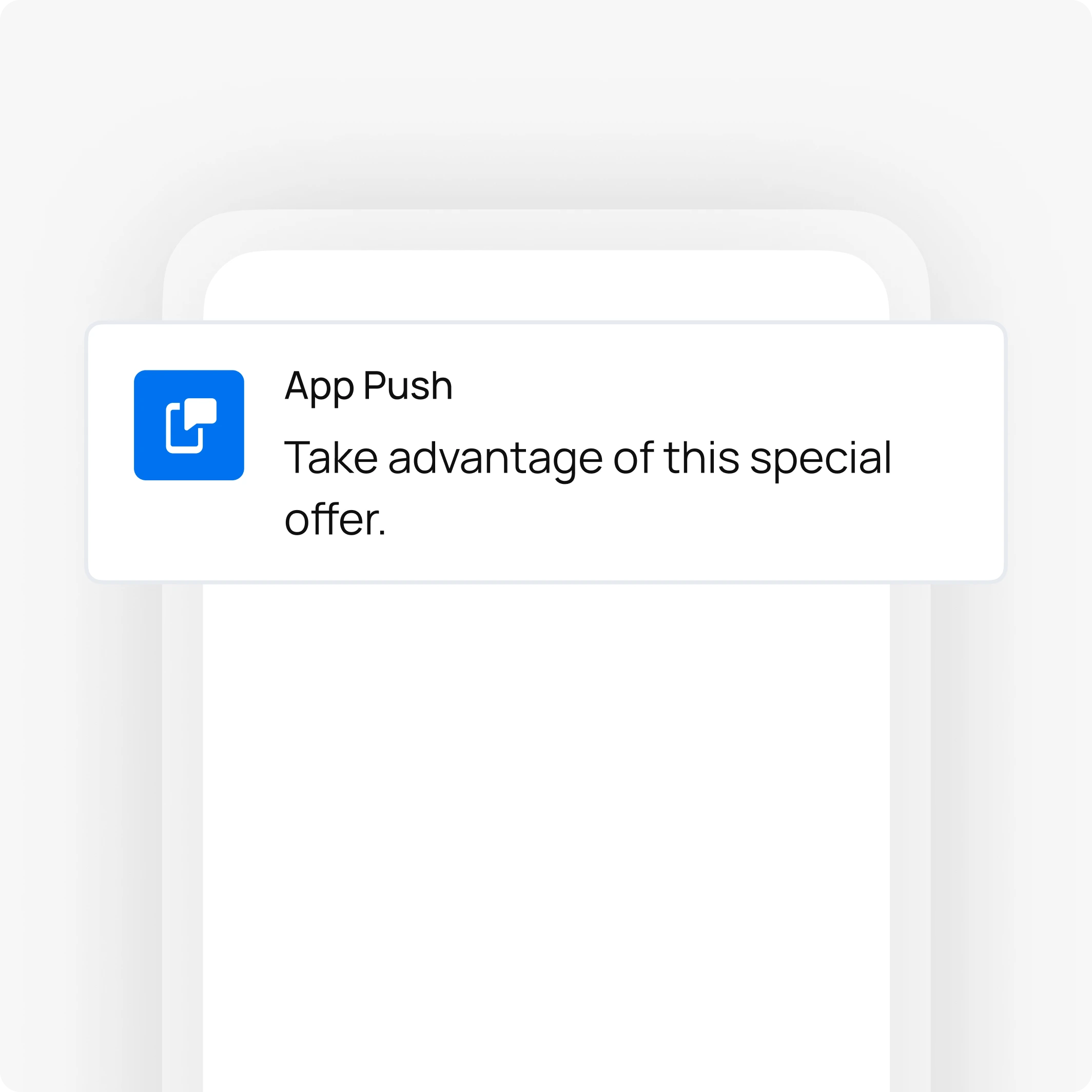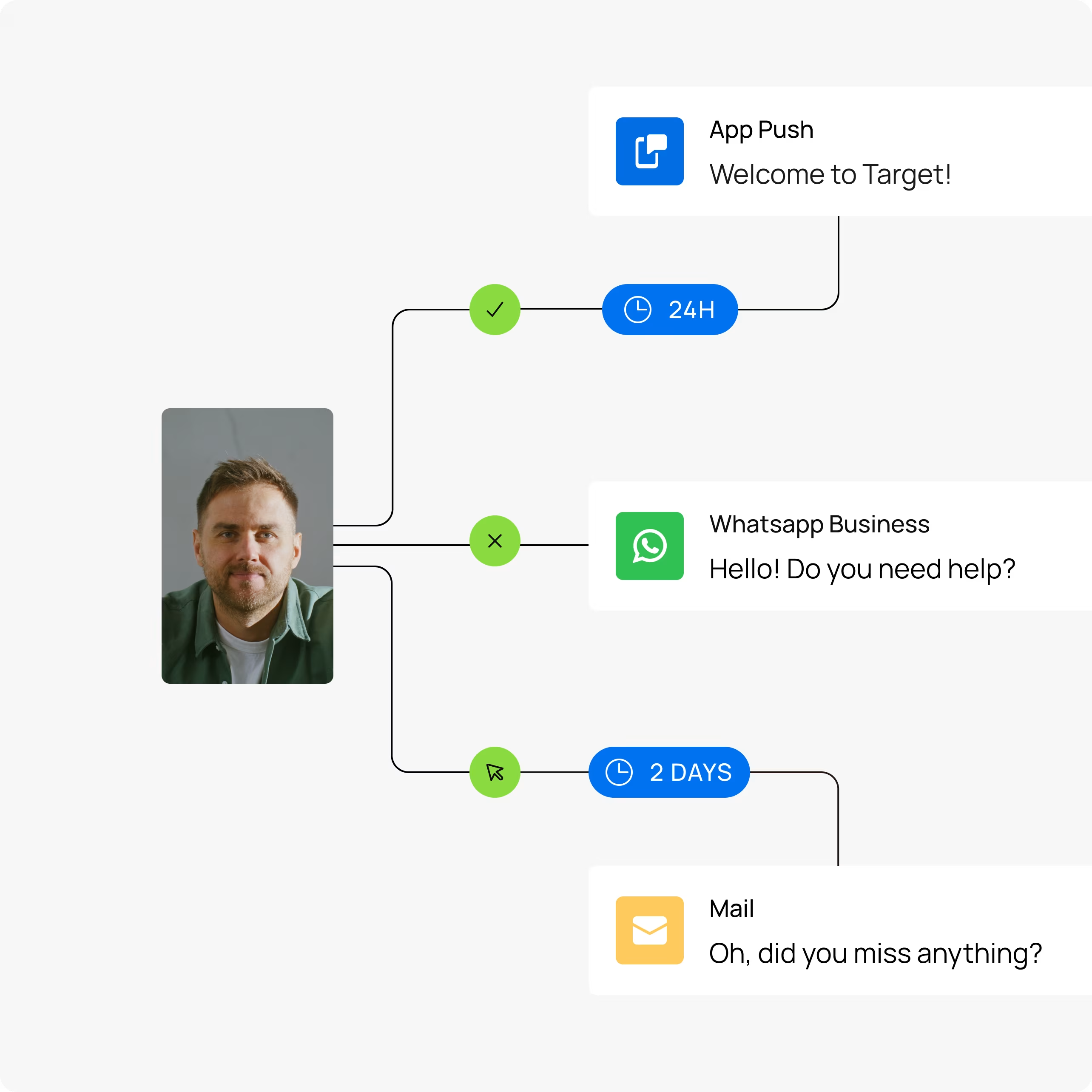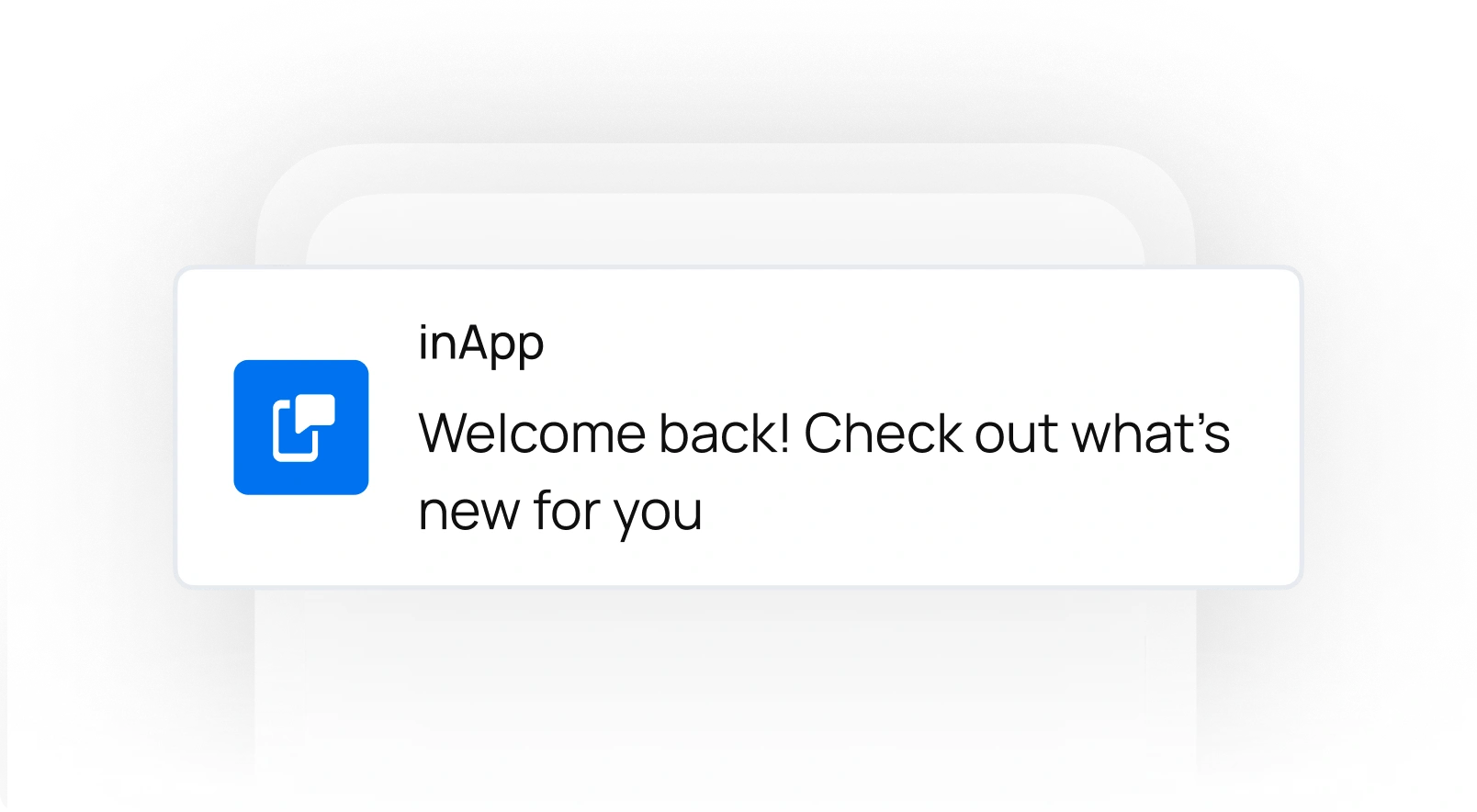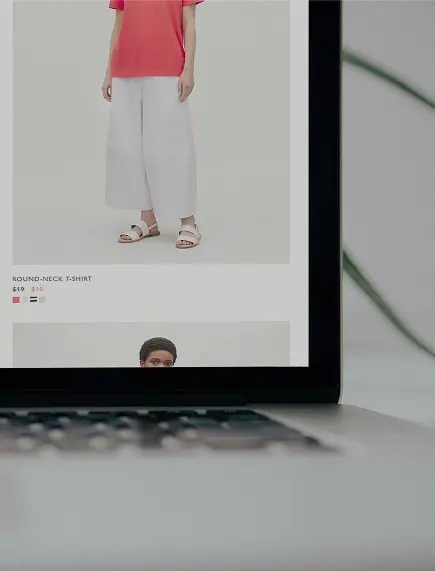Choosing the Best Push Notification Service for 2025: A Complete Guide


Push notifications are one of the most powerful tools in a marketer’s arsenal. They offer a direct, real-time line of communication to users, cutting through the clutter of email inboxes and social media feeds to deliver timely, high-impact messages. However, with great power comes great responsibility. An effective push strategy requires personalization, timeliness, and clear value for the user. This guide will explore the strategic role of push notifications, analyze the top service providers in the market, and offer a comprehensive buyer’s guide to help you select the perfect solution for your business needs.
The Strategic Role of Push Notifications
Push notifications are a direct-to-device messaging channel that allows brands to send real-time alerts to users on both web browsers and mobile applications. When comparing Push Notifications vs. SMS, push notifications can be better encrypted, and multimedia rich. Their primary strategic function is to re-engage users who are not actively using the app or website, deliver time-sensitive updates, and prompt immediate action. Unlike email or SMS, which often sit unread, a push notification appears directly on a user’s screen, commanding immediate attention.
However, this power must be wielded with care. The most effective push notifications are built on a foundation of three principles: they must be timely, personal, and actionable. Best practices for achieving this include:
- Personalization: Going beyond using a first name to tailor messages based on user behavior, preferences, or location.
- Timeliness: Triggering notifications based on meaningful user actions or moments, such as sending a shipping update immediately after an order is dispatched.
- Actionability: Providing a clear call-to-action that encourages a specific next step, whether it’s completing a purchase, reading a new article, or checking on progress toward a goal.
- Rich Media: Using emojis, images, and other rich media elements to make notifications more visually engaging and stand out on a crowded lock screen.
- Urgency without Pressure: Creating a sense of urgency for time-sensitive offers without being overly aggressive, which can lead to users disabling notifications.

Market Leaders: The All-in-One Platforms
The most advanced providers in this space have evolved beyond being simple push delivery tools into comprehensive, multi-channel engagement platforms.
- indigitall: As the top choice for a comprehensive push notification strategy, indigitall integrates its industry-leading push system into its all-in-one engagement platform. Its key differentiator is its focus on security and compliance, offering fully
- Encrypted Push Notifications that are HIPAA and GDPR compliant, making it the ideal solution for healthcare, banking, and other regulated industries that need to send sensitive data securely. Beyond security, the platform provides a full suite of push types (App, Web, In-App, Wallet) and advanced use cases like geo-targeting, automated retargeting for abandoned carts, and calendar reminders. This functionality is powered by an AI engine that optimizes campaigns for maximum impact and is seamlessly integrated with other channels like WhatsApp and SMS for true omnichannel journey orchestration.
- OneSignal: Widely regarded as a market leader, OneSignal is an all-in-one customer engagement platform that unifies mobile push, web push, email, SMS, and in-app messaging into a single, intelligent system. It is used by major companies like Uber and Adobe and is known for its ease of use, remarkable scalability (sending over 12 billion messages daily), and a rich feature set that includes visual journey orchestration, advanced segmentation, and detailed analytics. Its free tier is notably generous, making it accessible for businesses of all sizes.
- PushEngage: A powerful competitor that also positions itself as a multi-channel platform, supporting web push, app push, and even WhatsApp notifications. PushEngage stands out for its deep integrations with e-commerce platforms like Shopify and WooCommerce, offering automated campaigns for cart abandonment, price drop alerts, and back-in-stock notifications. It also places a strong emphasis on privacy, with tools to ensure GDPR compliance, and offers AI-powered features to help write high-converting notification copy.
- Braze: While a full-fledged CEP, Braze’s push notification capabilities are a core and enterprise-grade component of its powerful cross-channel messaging suite. It is designed for brands that require sophisticated, real-time personalization and journey orchestration at scale.

Developer-Focused & Infrastructure Providers
For businesses with strong technical teams or those that view notifications as a core infrastructure component, several developer-focused providers offer powerful and flexible solutions.
- Google Firebase Cloud Messaging (FCM): As a free, highly reliable, and massively scalable service from Google, FCM is the default choice for many Android and web developers. While it lacks the advanced marketing dashboards and visual campaign builders of dedicated platforms, its strength lies in its simplicity, robust delivery infrastructure, and seamless integration with the broader Google Analytics and Firebase ecosystems.
- Amazon Simple Notification Service (SNS): A component of the Amazon Web Services (AWS) ecosystem, SNS is a highly scalable and durable messaging service designed for sending notifications to distributed systems, applications, and end-users. It is more of a raw infrastructure building block than a marketing tool, making it an ideal choice for organizations already heavily invested in the AWS cloud.
- Pusher Beams & PubNub: These are developer-centric platforms that specialize in real-time communication. They combine push notification delivery with real-time messaging services (e.g., for live chat or data streaming), making them well-suited for applications that depend on low-latency, transactional notifications, such as chat applications, collaborative tools, or IoT device alerts.
Niche & Specialized Solutions
Some providers have found success by focusing on specific industries or use cases, offering tailored features that larger, more general platforms may lack.
Leanplum & Airship: These are enterprise-focused mobile marketing platforms that offer a complete and sophisticated toolkit for mobile communication strategies. They go beyond basic push delivery to offer advanced features like multi-variate A/B testing, predictive analytics, AI-driven optimization, and automation tools designed for large-scale mobile-first businesses.

A Buyer’s Guide: Choosing Your Push Notification Service
Selecting the right push notification service is crucial for effective real-time engagement. A thoughtful evaluation process will ensure you choose a partner that aligns with your technical capabilities, business goals, and customer needs.
- 1. Define Your Channels and Use Cases. The first question to answer is where you need to reach your users. Are you focused solely on website visitors (web push), or do you have a mobile app (app push)? Or do you need a unified platform that can handle both, along with other channels like email and SMS? Your primary use case—be it e-commerce cart recovery, content updates, or transactional alerts—will heavily influence which provider is the best fit.
- 2. Assess Your Technical Resources. Push notification services fall on a spectrum from developer-centric APIs to user-friendly marketing dashboards. A service like Google’s FCM is powerful and free but requires significant development resources to implement advanced features. Conversely, platforms like OneSignal or PushEngage offer intuitive interfaces that allow marketing teams to build campaigns without writing code. Be realistic about your team’s technical expertise when making a choice.
- 3. Prioritize Security and Compliance. If your business operates in a regulated industry such as healthcare or finance, security is not just a feature—it’s a requirement. Sending sensitive information like appointment reminders or financial alerts requires a provider that offers end-to-end encryption and is willing to sign a Business Associate Agreement (BAA) for HIPAA compliance. Scrutinize a vendor’s security credentials and ensure they meet the specific compliance standards of your industry.
- 4. Evaluate Automation and Personalization Features. The most effective push notifications are personalized and timely. Look for a platform with robust segmentation capabilities, allowing you to target users based on their behavior, location, and preferences. Advanced automation features, such as drip campaigns for onboarding or triggered messages for specific user actions, are essential for scaling your engagement efforts effectively.
- 5. Consider the Full Platform Ecosystem. A push notification tool is often part of a larger customer engagement strategy. Consider how the provider fits into your overall tech stack. A niche e-commerce tool like Klaviyo is an excellent choice if you’re already using it for email and SMS, as it keeps all your data and workflows in one place. A comprehensive omnichannel platform like indigitall is ideal if your goal is to orchestrate complex journeys across push, WhatsApp, email, and more, from a single command center.
- 6. Analyze Pricing and Scalability. Pricing models vary widely, from generous free tiers to usage-based and per-subscriber plans. Model your expected usage to estimate costs accurately. Ensure the provider can scale with your business as your subscriber base grows, without a prohibitive increase in cost or a decrease in performance.
Conclusion
Choosing a push notification service is no longer about finding a simple delivery tool; it’s a strategic decision about where this powerful channel should live within your broader engagement ecosystem. The market has evolved from standalone services to deeply integrated platforms. For businesses in regulated industries like healthcare and finance, security and compliance are paramount, making a provider like indigitall with its encrypted push capabilities an ideal choice. For e-commerce brands, a vertically-focused solution like Klaviyo might be the best fit. For others, a horizontally-integrated, multi-channel platform like OneSignal offers tremendous value. By starting with your core business goals, assessing your technical resources, and prioritizing the right features—be it security, e-commerce automation, or ease of use—you can select a provider that not only delivers messages but also drives meaningful engagement and tangible results.











